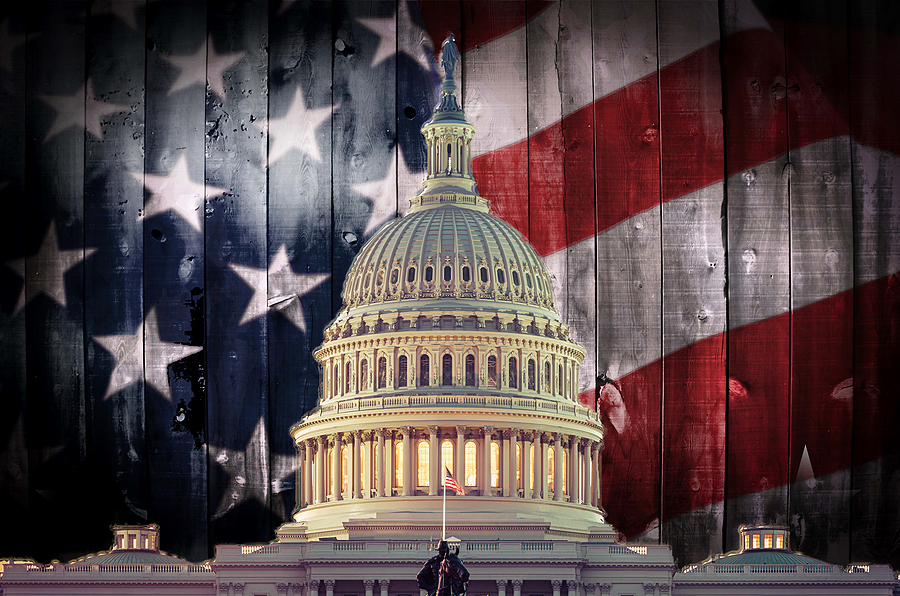
Four Experts Share Insight
At a congressional hearing that outlined multiple aspects of electronics recycling and reuse, the discussion explored how export regulations affect U.S. based businesses.
This Wednesday, evidence was heard by the U.S. Senate’s Environment and Public Works (EPW) Committee from four experts in the recycling sector. Ajay Kochhar from Li-Cycle which recycles batteries was present, as well as Craig Boswell from HOBI International, who specializes in ITAD and mobile device reuse. Kitty McIlroy spoke on behalf of the Maryland Recycling Network and Northeast Maryland Waste Disposal Authority, while Charles Pellicane came to represent Human-I-T, a non-profit ITAD firm.
At the hearing, Sen. Tom Carper, an advocate of recycling and Democrat from Delaware, chaired an event titled “Improving Capacity for Critical Mineral Recovery through Electronic Waste Recycling and Reuse.”
“Today, we’re interested in learning more about the role that the federal government can and should play in e-waste recycling,” Carper highlighted during the beginning of the proceedings.
The Dilemma Surrounding Exports
The four witnesses submitted their testimonies, statements, and responses to questions from the senators with regards to various aspects within the recycling industry. One major point which was raised was the importance of exports as part of the U.S. recycling sector.
In June of 2022, parties of the Basel Convention on Control of Transboundary Movements of Hazardous Wastes and their Disposal voted to add restrictions and conditions to used electronics shipments over borders. This modification imposes added requirements, and limits on cross-border transportation of used or scrap electronics, which gained support from environmental activists.
Meanwhile, the Coalition for American Electronics Recycling (CAER), a noteworthy group of individuals from the commercial sector, have been vocally advocating for bills in Congress for over 10 years. These pieces of legislation would ban U.S. exports of numerous types of e-scrap.
The bill language made headway in Congress last year, but fell short of passage, as it was widely opposed by the Institute of Scrap Recycling Industries (ISRI). ISRI typically favors fewer limitations to global commerce across the recycling industry.
HOBI Pushes Back
At the recent hearing, HOBI International president and co-founder, Craig Boswell described the Basel Convention changes as a “guillotine” looming over the industry. This amendment was initially proposed jointly by Switzerland and Ghana, to become effective in 2025.
Boswell asserted that the newly adopted regulations, which will modify materials formerly deemed harmless into hazardous substances, will heavily impact U.S. sales of used mobile devices shipped abroad for reuse.
“I can get 22% more for a Google Pixel in the Middle East, in Europe, than I can in the U.S., and come 2025 if that Google Pixel maybe has a cracked screen or something else, they would lump it in now – under Basel, if you drop your phone, it’s now a hazardous material because you cracked the screen, and we would not be able to participate in those markets,” he stated.
“This will isolate electronics recyclers in the U.S. from the remainder of the global market,” Boswell added.
Despite the U.S.’s lack of participation in the Basel Convention, this development brings an embargo on shipments from America to any place that does not possess a formal trading arrangement, Boswell explained while representing ISRI.
At this time, the United States only has this type of agreement Canada. However, he hopes that the U.S. will establish a similar arrangement with the Organization for Economic Cooperation and Development (OECD) before any alterations from Basel come into play on January 1st, 2025.
A Call to the U.S. Government
Various speakers at the meeting called for the U.S. government to take action by decreasing exports of materials, to strengthen the domestic recycling industry.
According to Ajay Kochhar, the co-founder and president/CEO of Li-Cycle, the U.S. could also aid in the growth of lithium battery recycling by assisting with the “leakage” of scrap materials being shipped to Asia.
“And it’s not just in batteries. It’s in e-waste, it’s in other industries,” Kochhar said. “We have to be practical about it, right? You can’t stifle companies. At the same time, it’s difficult, but that’s a big threat. And we’ve seen it in our industry, right, 90%-plus of lithium-nickel-cobalts all heading through China. So we need to build it here, that’s a corporate responsibility. But there needs to be the right policy environment to help support that.”
Pellicane, the executive vice president of business development and operations at Human-I-T, contended that limiting exports would be helpful for the American job market. Also stating that it would reduce the danger of used parts being sold as new ones to be utilized in electronics manufactured in America, which could include defense hardware.
“Really there’s that national security importance that we need to recognize, and there’s an ability to create jobs through the proper collection of those items while at the same time reducing our dependence on imported minerals,” Pellicane concluded.
